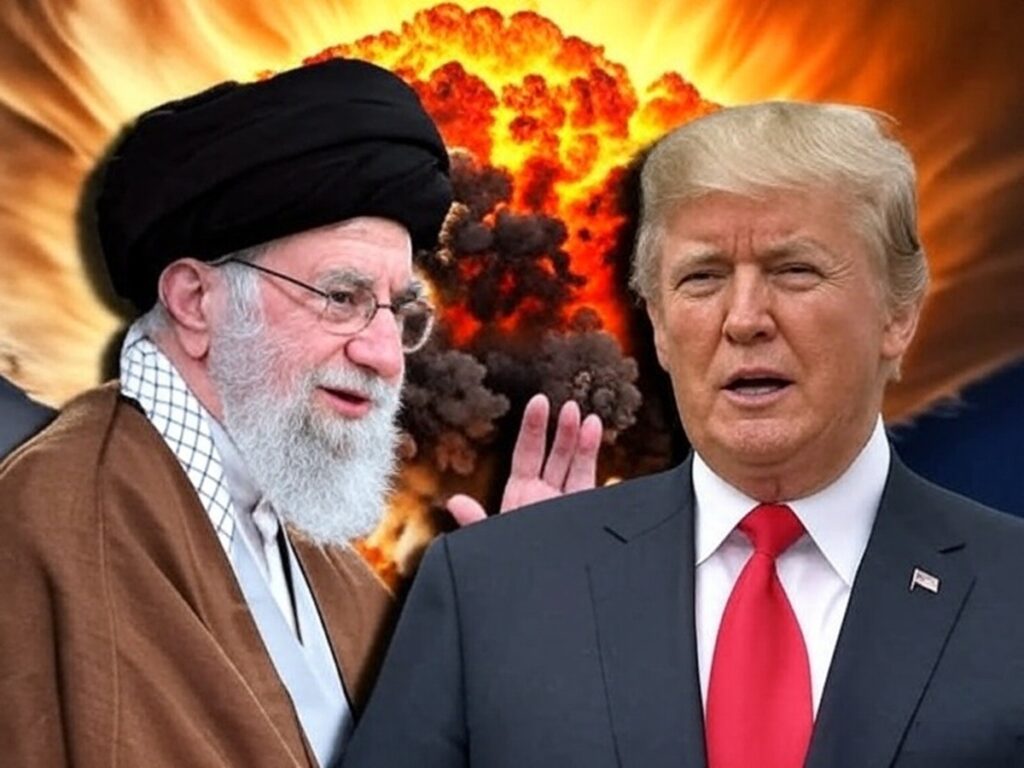U.S. reverses stance on limited uranium enrichment, raising tensions as Iran insists on its nuclear rights, while Israel and Republicans push for a hardline approach.
Tehran: The prospect of a new nuclear deal between the United States and Iran hangs in the balance as President Donald Trump declared on June 3, 2025, that Iran will not be allowed to enrich uranium at any level, reversing earlier indications from his envoy, Steve Witkoff, who suggested limited enrichment might be permissible. This shift, coupled with Iran’s unwavering stance on its right to enrich uranium for peaceful purposes, has cast a shadow over ongoing negotiations, with Israel and U.S. Republicans urging a complete dismantling of Iran’s nuclear program.
Trump’s Hardline Stance
In a statement on Truth Social, Trump emphasized, “We will not allow any enrichment of uranium,” directly contradicting Witkoff’s April 2025 comments that Iran could enrich uranium to 3.67% for civilian use, as permitted under the 2015 Joint Comprehensive Plan of Action (JCPOA). This reversal has sparked confusion, with Iranian Foreign Minister Abbas Araghchi calling it “unacceptable,” asserting Iran’s right to enrichment under the Nuclear Non-Proliferation Treaty (NPT). A CSIS report notes that Iran’s stockpile of 60% enriched uranium, enough for nine nuclear bombs, underscores the urgency of a deal, but Trump’s stance risks derailing talks.
Iran’s Defiant Response
Iranian officials, including President Masoud Pezeshkian, have reiterated that enrichment is a “national achievement” and non-negotiable. Deputy Foreign Minister Majid Takht-Ravanchi warned that talks “will not get anywhere” if the U.S. insists on zero enrichment. Iran’s stockpile of 9,247.6 kg of enriched uranium, including 408.6 kg at 60%, highlights its advanced capabilities, per a June 2025 IAEA report. Tehran is open to scaling back to lower enrichment levels and allowing inspections but demands sanctions relief and guarantees against another U.S. withdrawal, as occurred in 2018.
Israel and Republicans’ Pressure
Israeli Prime Minister Benjamin Netanyahu has pushed for military action against Iran’s nuclear facilities, viewing diplomacy as insufficient. Over 200 U.S. Congressional Republicans, led by Rep. August Pfluger and Sen. Pete Ricketts, urged Trump to demand “full dismantlement” of Iran’s nuclear program, arguing that any enrichment risks proliferation. “The scope of Iran’s nuclear buildout makes verification impossible if enrichment continues,” their letter stated. This pressure complicates negotiations, with Iran’s Supreme Leader Ayatollah Ali Khamenei calling U.S. demands “excessive and outrageous.”
Ukraine’s Drone Strike Connection
The urgency of curbing Iran’s nuclear ambitions is amplified by its growing military ties with Russia, highlighted by Ukraine’s recent drone attack on Russian infrastructure. Iran’s supply of drones to Russia has raised concerns about its technological advancements, with NATO analysts noting parallels between Iran’s drone capabilities and its nuclear ambitions. A 2025 Agency report suggests Iran’s drone exports have bolstered its leverage in nuclear talks, as it demonstrates regional influence. India, observing Ukraine’s drone tactics, is accelerating its own drone program to counter similar threats, per DRDO statements.
Conclusion
Trump’s abrupt shift to a zero-enrichment policy has jeopardled doubts about a nuclear deal, with Iran standing firm on its NPT rights and Israel pushing for military action. As negotiations falter, the risk of escalation grows, underscored by Iran’s expanding nuclear stockpile and its strategic alignment with Russia. India, meanwhile, watches closely, aiming to bolster its drone and defense capabilities to navigate this volatile geopolitical landscape.


